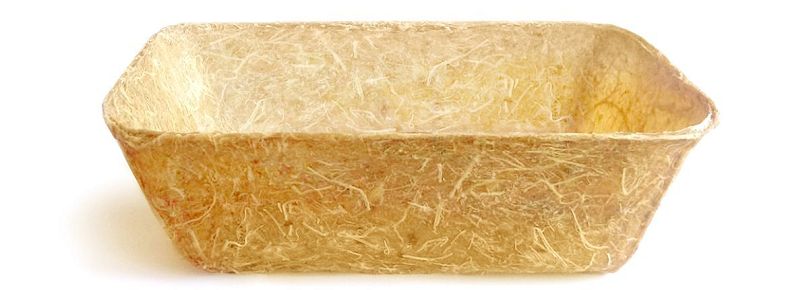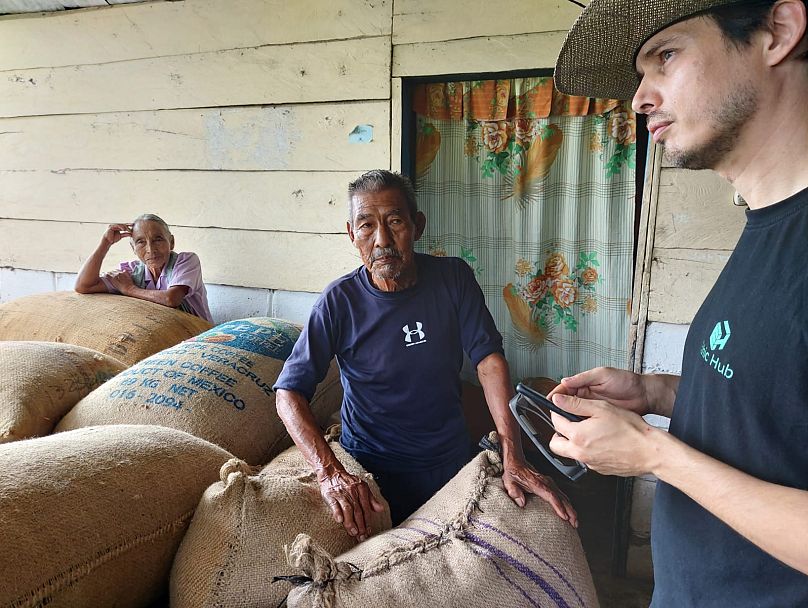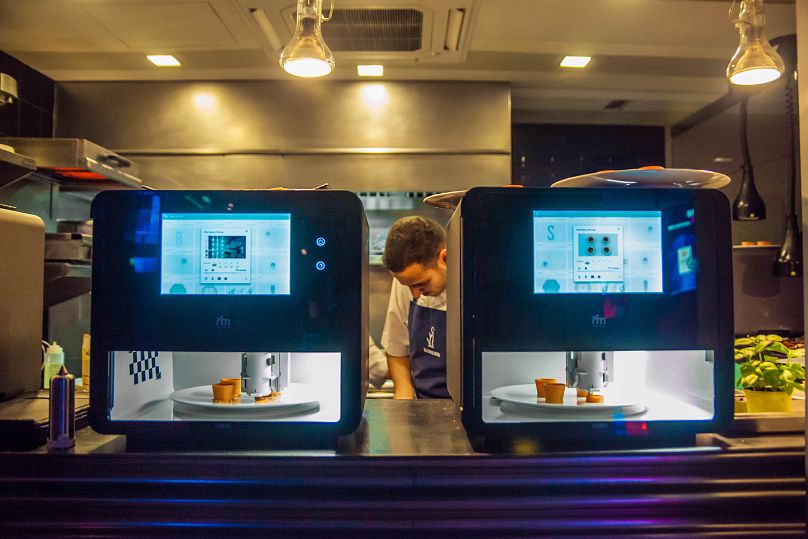Is Spain at the beginning of a food revolution?
Is Spain at the beginning of a food revolution?
 ADVERTISEMENT
ADVERTISEMENT
 ADVERTISEMENT
ADVERTISEMENT
Typically known for its more traditional cuisine, Spain, is beginning to see more and more innovative food tech startups appearing on the scene.
The CEO of Europe's biggest startup accelerator Eatable Adventures, José Luis Cabañero, puts it down to the presence of "strong biotech research centres in Spain".
He says that the driving force behind many of these startups is a push for 'betterness'.
"There are new products, better for humans, better for nature, but also better for creativity," says Cabañero.
"Now, every startup is addressing sustainability, as there is a high demand for plant-based products for example. They are aiming to reach a negative carbon footprint."
We've put together a list of 5 food tech startups that you should keep your eye on.
1. Feltwood: Transforming food waste into packaging
Based in Zaragoza, this startup has created technology that can produce packaging materials from farming and vegetable waste that is not suitable for human consumption.
"Feltwood materials are 100% vegetable fibres," explains Feltwood CEO Arancha Yáñez. “Without plastics, adhesives or binders of any kind, so it is a real alternative to plastic and wood in many applications."
The resulting materials can be used to make fruit and vegetable trays in supermarkets, and even as furniture, toys, or as thermal and acoustic insulation.
Yáñez believes there is a wide and growing social demand for ecological solutions and the reduction of plastics.
“This demand has even been reflected in recent EU legislation,” she told Euronews. "We should continue our work for more eco-friendly solutions for this and every industry. This is the only option, there is no “planet B”.
2. Cubiq Foods: Better fat
Biotech and pharmaceutical experts, Andres Montefeltro and Raquel Revilla, launched Cubiq Foods in December 2018. They say they wanted to apply their knowledge to developing healthier food products, and they turned their attention to one ingredient in particular: fat.
“At Cubiq Foods, our goal is to incorporate a new fat structuring technology to reduce the content of saturated fatty acids and the caloric content, without compromising the texture of the final product," explains Andres Montefeltro.
To do this, they created a vegetal oil and water emulsion stabilized with 100% vegan ingredients.
Their fat products aren’t designed to be consumed as they are, but are added to other finished foods, such as lab-grown meat, to enhance flavour and texture.
They are also working on transforming liquid oils into solid form. One practical application of this could be to add them to plant-based burgers, as an alternative to coconut oil, which is high in saturated fat.
They say they have more than 30 clients in Spain, who are interested in working with Cubiq Foods, but they will have to wait until the end of 2020 for the startup to finish creating its prototypes.
They have also a highly innovative R+D line to produce cell-based fats that are high in omega 3 fatty acids, expected to reach the market in 2022.
3. Heura: not just any soy
For former social rights activist and co-founder of Heura, Bernat Añaños, the starting point is clear: "By 2050, there will be 10 billion people on planet Earth. With these predictions, there won't be enough food to feed everyone, and not enough space to feed livestock."
It takes 94% less water to create their product, Heura, than the same amount of veal protein. While 1kg of beef requires 20kg of cereal feed, the same amount of Heura only needs 0.5kg of soy.
Heura makes ‘chicken’ and ‘steak’ products, which the company says, have fooled people in blind taste tests.
"When they start eating Heura foods, people think they are eating meat, and when they know [it doesn't contain meat], they want to recommend it to friends and family," says Añaños.
Already in 7 countries in Europe and Asia, Heura plans to expand into Latin America.
4. EthicHub: loans, investment and ethical coffee
EthicHub is a ‘crowdlending’ platform that connects farmers who do not have access to bank loans, with investors seeking greater profitability, or wanting to create social impact.
Based on blockchain technology, EthicHub "eases the global financial connexions between smallholder farmers, especially coffee farmers in Chiapas, Mexico, and European retailers," explains Mexican-Spanish CEO Jori Armbruster.
As of September 2020, the platform has on board 500 lenders from all around the world. The loans are then used by small-holder farmers for fertilisers, solar-powered bean dryers, or to pay employee wages.
Aligned with some of UN's Sustainable Development Goals, EthicHub's main aim is "to reach zero poverty in the region", although Armbruster’s aim is even higher: "I want grow another way of doing things and be even more profitable than the traditional way of exploiting the other resources."
5. Foodini: a 3D printer for your kitchen
Launched in 2012, and now considered a leader in the food-tech sector, is the Spanish company Natural Machines. The brand is most known for its 3D food printing machine: Foodini.
Linked to an application, accessible via a smartphone or tablet, the user simply selects a pattern, or a shape and adds up to five ingredients.
"Foodini then pushes food down the capsule, through the nozzle, and prints it in several layers. It is quite similar to your inkjet printer," explains co-founder Lynette Kucsma.
It can prepare a full dish, like a pizza or pasta, or can be used to create complex designs on cakes or a plate.
"You're getting kitchen efficiency, for sure. But it's also an easy way to help you make homemade food", Kucsma adds.
Foodini only measures 43x45 cm and costs around €4,000. It has received multiple awards, and is ranked in the top 5% of the official FoodTech 500 list, which is billed as the Fortune 500 of FoodTech.















